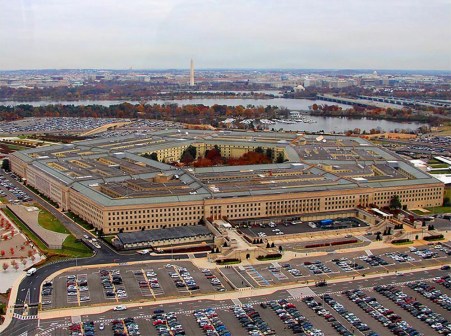As China advances, Congress wants DOD to get up to speed on biotechnology

Pentagon personnel could soon be told to participate in new training programs designed to prepare them for anticipated advancements in biotechnology and its convergence with other critical and emerging technologies, like quantum computing and AI.
House lawmakers recently passed an amendment en bloc in their version of the fiscal 2026 National Defense Authorization Act that would mandate the secretary of defense to set up such trainings, no later than one year after the legislation’s enactment.
Biotechnology refers to a multidisciplinary field that involves the application of biological systems or the use of living organisms, like yeast and bacteria, to produce products or solve complex problems.
These technologies are expected to revolutionize defense, energy, manufacturing and other sectors globally in the not-so-distant future — particularly as they are increasingly paired with and powered by AI. And while the U.S. historically has demonstrated many underlying strengths in the field, recent research suggests the government may be falling behind China, where biotechnology research efforts and investments have surged since the early 2000s.
The new House NDAA biotech training amendment was put forward by Rep. Chrissy Houlahan, D-Penn., according to a spokesperson on her team, who said the congresswoman “led this as a reflection of the findings of the National Security Commission on Emerging Biotechnology.”
That commission was formed following a directive in the fiscal 2022 NDAA, and charged with conducting a thorough review of how biotechnology and associated capabilities could shape current and future Defense Department and military activities.
The panel delivered its major report and action plan to Congress earlier this year.
“As the Co-Chair and Co-Founder of the House BIOTech Caucus, Rep. Houlahan is working across the aisle to ensure the U.S. stays competitive in this emerging field, especially as China makes strides in both civilian and military applications in biotechnology,” the spokesperson told DefenseScoop this week.
Recommendation 3.2e in the review, they noted, calls on Congress to require DOD, the intelligence community and other agencies with national security mandates to upskill their workforces in biotechnology and biosecurity through tailored training that can also help improve threat awareness and improve decision-making.
Houlahan’s legislation would direct DOD leadership to create tailored training options that are relevant to personnel with various skillsets and expertise in biotechnology, including across research and development, risks and response, test and evaluation — and other activities.
Some of the minimum requirements for the envisioned educational programs to cover that are listed in the bill include: the fundamental science underlying biotechnology, AI and other relevant technologies; mechanisms by which the federal government supports, funds, purchases and deploys biotechnology and its applications; ethical, social and legal aspects of biotechnology; and future trends in the field including intersections with AI, quantum computing, autonomous systems, robotics, advanced manufacturing and other capabilities.
“The secretary shall ensure interactive learning with scholars and experts from private, public and nonprofit sectors is included under the training programs,” the legislation states. “The secretary shall provide access to courses through institutions of professional military education, such as the National Defense University.”
If this proposal becomes law, the DOD would have a six-month deadline to provide a plan for establishing the training programs to Congress.
Lawmakers in the House and Senate are in the final process of reconciling their respective versions of the fiscal 2026 NDAA, which must happen before the compromise bill can be approved by both chambers of Congress and sent to the president’s desk for signature.






